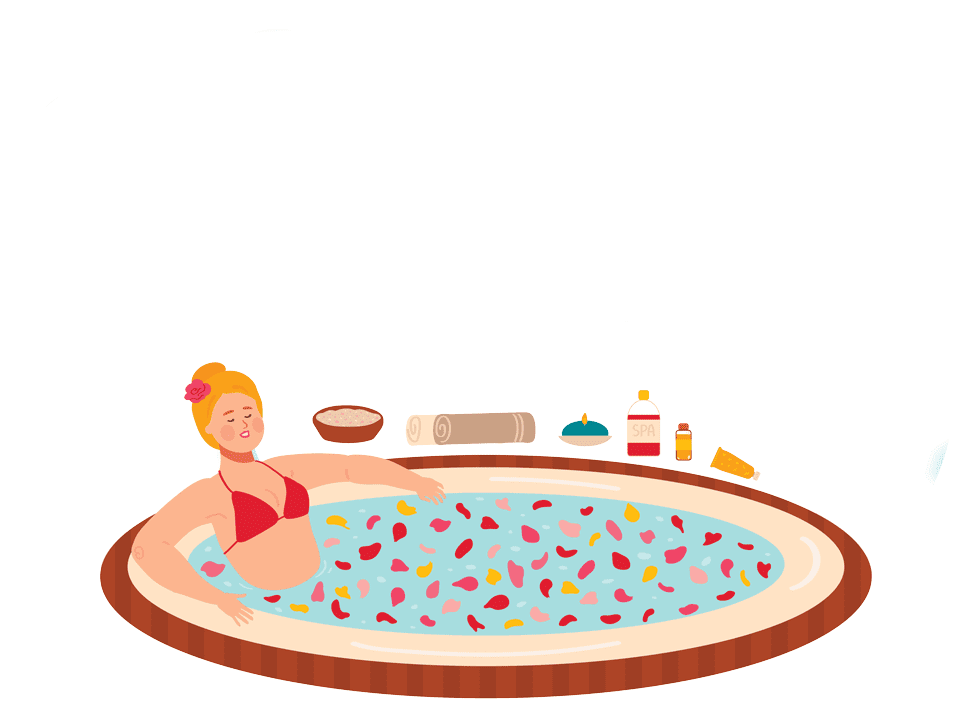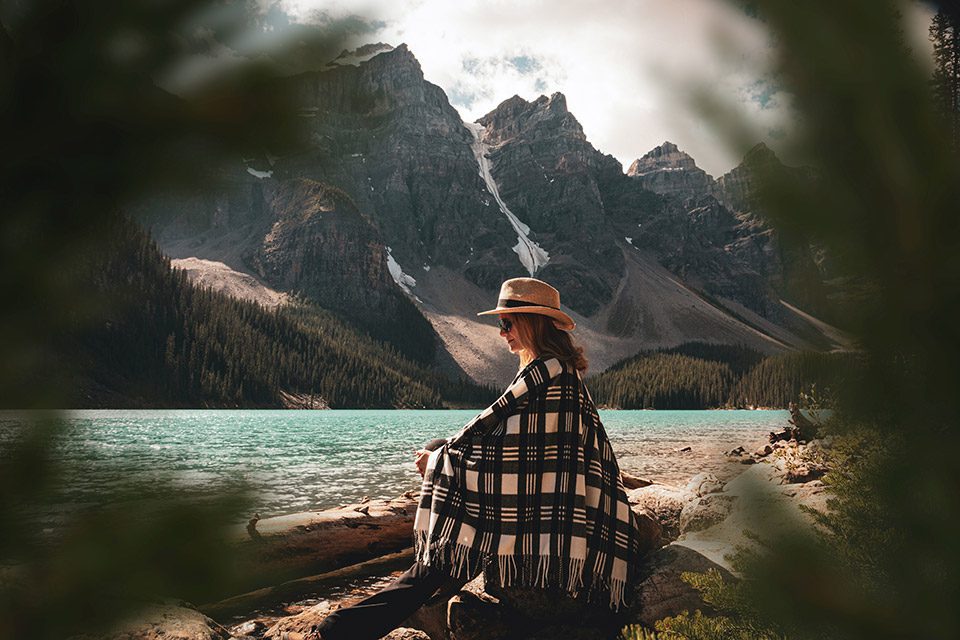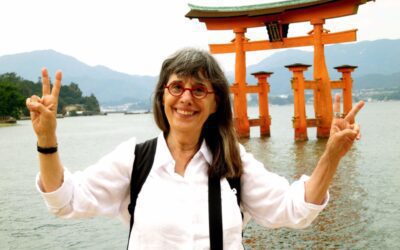Last updated on April 7th, 2024
Featured image photo credit Andre Furtado on Pexels
The Role of Wellness Travel in Mind-Body-Spirit Rejuvenation
by Amanda Burgess
The old adage is true: Change is first felt in the body. When we experience grief, loss or change, our stress levels skyrocket and our immunity plummets, leaving us open to illness. Whether we do it before or after we hit burnout, travel is something that we intuitively turn to for renewal.
Sure, it sounds obvious. We know that travel takes us out of our everyday. We spend more time outdoors when we travel, soaking up Vitamin D-boosting sunshine. We’re less sedentary, and more present. We’re more open to people and experiences.
Yet there’s a significant amount of science behind the idea of travel as stress buster. A study released in 2019 by the Journal of Positive Psychology found that meditation and vacations have overlapping effects, with both associated with higher levels of wellbeing and boosted mindfulness. The long-running Framingham Heart Study found that those who did not take a vacation for several years were more likely to have heart attacks than those who traveled annually.
There’s a wealth of economic data to prove that we’re increasingly turning to travel as a healing modality. According to new data from US-based non-profit Global Wellness Institute (GWI), wellness tourism – travel associated with the pursuit of maintaining or enhancing personal wellbeing – is projected to hit $817 billion this year, skyrocketing to $1.3 trillion by 2025.
Where wellness tourism is headed: Doing good to feel good
While all tourism took a significant hit in 2020 and 2021, as the market starts to recover and rebuild phase in 2022 and beyond, the wellness tourism segment is poised for a boom. Around the world, our mental health was tested in 2020. We’ve learned to value our physical health and quality of life. When we’re mobile again, we’re going to be looking at travel through the lens of holistic wellness – not only our own, but that of the local communities we visit.
“Travellers want to experience and learn…but they want to do it in a sustainable, controlled way where they have an opportunity to connect to the local culture and wellness practices – spiritual, physical or mental,” says Wolf Paunic, President, Trafalgar, Costsaver and Brendan Vacations.
The tour operator has baked an element of wellness travel into every Trafalgar and Costsaver trip in Asia, in support of a new #maketravelmatter campaign and its three organizational pillars – real ease, real connection, and real joy. “That means that we are giving back to the community that we are visiting,” says Paunic. “We will connect with farmers, help on a cooperative farm, support a school in Thailand or Myanmar and ensure that our guests have an opportunity to share tourism dollars not only with the destination but support initiatives that are helping people in marginalized communities.”
Renewal within reach – spa recommendations from JourneyWomen
No discussion of wellness tourism would be complete without a nod to the segment that started it all – spas. It represents 48% of global wellness tourism expenditures and is forecasted to grow by $25.48 billion from 2020 to 2024, according to global tech research and advisory firm Technavio.
It’s easy to see why. A quick trip to the spa can give you almost all of the same stress-reducing benefits as international travel and can be treated as a day trip or weekend getaway domestically.
Build your must-visit spa list and gift yourself some serious self-pampering with these tried-and-tested suggestions from yours truly:
North America
Le Monastère des Augustines – Quebec City, Quebec
Located in the historic wings of the Hôtel-Dieu de Québec monastery, from which emerged the first hospital on the continent north of Mexico, this non-profit healing centre offers packages designed to promote rest, renewal and self-discovery. They are based on practices that help you achieve balance and wellness, while also learning about the rich heritage of the Augustinian Sisters. Lovely and quiet, with various wellness activities on offer (yoga, meditation). Amazing location in the heart of the city.
Thermëa by Nordik Spa-Nature – Winnipeg, Manitoba
This spa has built its offering around the thermal cycle – a heat therapy treatment that involves alternating hot and cold temperatures, followed by a rest period. This relaxation ritual is based on a 2,000-year-old Nordic tradition that Nordik Spa-Nature owner and president Martin Paquette observed and experienced on his travels through Europe. Heat therapy is known to accelerate recovery and healing, and some doctors recommend it to their patients suffering from injury, chronic pain, rheumatism, and arthritis. Some studies suggest that heat therapy may also be an effective remedy in the treatment of mild depression, appetite loss, and anorexia. It’s the cold sections of the therapy that take some convincing. If spa staff see guests hesitating, they explain the benefits. After you’ve been in the sauna, you’re sweaty, your pores are open, and your heart rate has slowed. The cold cycle gets your heart rate up and increases your adrenaline. It increases blood flow, which allows your body to heal faster. It’s good for sore muscles. To promote total relaxation after moving through the thermal cycle up to four times, Thermëa offers the River Room, where guests are invited to nap. The room is always full. This spring, Nordik will open a new Thermëa location in Whitby, Ontario, a 45-minute drive from Toronto. At 385,423 sq. ft, the spa will be five times the size of its Manitoba sister.
Asia
NUR Salon – Ubud, Bali
An open-air spa tucked into a garden oasis on famed main street Jl. Hanoman in Ubud. Must-try: The luxe Ginger Treatment. Walk down a pebble mosaic-tiled path to an outdoor treatment room with a living rock wall, rough-hewn granite bathtub filling with steaming water on a trickle and a treatment table adorned with ultra-soft Indonesian textiles. Surrender to a 1.5 hour full-body massage, after which you are scrubbed with ginger-sugar and washed by your service provider in a beautiful ceremony before being submerged into a petal-filled aromatherapy bath as you sip on hot ginger tea. Pure, unadulterated bliss at a fraction of the cost of most spas.
Europe
Friedrichsbad – Baden-Baden, Germany
Roman bathing culture meets Irish hot-air baths in this historic spa town in southwestern Germany’s Black Forest, nestled in the mountains near the French border. After your circuit, try the Deluxe Luxury Bath with massage at partner spa CaraVitalis. Make a sumptuous weekend of it with a stay at Hotel Belle Epoque (don’t miss the High Tea served daily in the sun-dappled drawing room complete with roaring fireplace and delicate scones with fresh jam and clotted cream). Leave room for breakfast at Parisen-style patisserie Café König.
Kaiser-Friedrich Therme – Weisbaden, Germany
This spa invites you to shed your inhibitions and your clothing – an unforgettable experience that is homage to the Roman sweat bath on whose foundations the more modern building was constructed. There is something for every sauna lover: A tepidarium, sudatorium, sanarium, Russian steam bath, Finnish sauna, and stone steam bath. You can cool off in the lavacrum (cold water plunge pool) but an experience not to be missed is the the tropical freezing rain area. You can round out your day in the frigidarium (fresh air room), the luminarium with calming lighting, or refuel in the Springbar.
Aga Hamami – Istanbul, Turkey
The oldest Turkish bath in Istanbul, the historical Ağa hamamı was built in 1454, and used as a private hammam. It was opened to the public in 1923. Unlike the city’s other luxurious hammams, this one offers you history, not frills. Go for the full package and feel like a sacrifice to an ancient deity as you lay on a stone altar for a body scrub, foam bath, hair wash, oil massage and face mask.

Tips for selecting a wellness trip that is right for you
According to the Global Wellness Institute, there are two types of wellness travellers – those who choose their destination based on its wellness offerings, and those who seek to engage in wellness activities during any kind of travel.
Get clear on which type of traveller you are – usually, and in this moment
Maybe the idea of a vipassana (10-day silent meditation retreat) sounds rejuvenating to you, but if you’re the type of person who feeds off of interaction with others, you might find this extremely frustrating and challenging. Do you need the challenge? Are you looking to slow down or simply reset with a change of scenery? Do you want heavy or light physical activity? Do spiritual topics and language connect with you or irritate you?
Think about what helps you to relax and rejuvenate
Does being near water lull you into a meditative state? Do you need the mountains? Does birdsong and the gentle sounds of forest and jungle soothe you? What some people find relaxing, others find grating. Environment is key. Choose yours wisely. If you’re not sure where to start, make a list of all the things you find soothing. Review it. You’ll start to notice patterns. Make a list of your non-negotiables – the things you absolutely must have to be able to let go – and the nice-to-haves. Use it to create criteria against which to assess experiences.
Consider how involved you want to be in the process
Do you want all the details taken care of so that all you have to do is show up? Then a retreat or healing package might be just what you need. Do you enjoy following an itinerary or do you crave more freedom? Do you want experts to guide you through a process or do you want to create your own experience? In February 2020, I created my own two-week yoga retreat at The Yoga Barn in Ubud, Bali. I booked myself a room in their women’s dorm, bought an unlimited yoga pass and spent each night planning my next day’s schedule of classes and workshops. I wanted the flexibility to go off on other adventures while still committing to a daily yoga practice. That’s what brings me peace and joy. Figure out what does it for you.
Align with your interests and passions
What’s already a part of your life in some small way – yoga, meditation, exercise, dance, art, crafting? What do you wish you had more time for? Is there something you’ve never tried but have always been drawn to? Maybe it’s time to step outside of your comfort zone. The only person who can tell you that is you. Get still. Get quiet. Ask yourself what you want to spend your time doing. If the words ‘I should’ pop up, ask again. There are no should’s with healing. Your heart knows what it wants and needs. Let it speak to you.

Solo or friend in tow?
Some people like the relative anonymity of travelling among strangers when working through a loss or change. It’s harder to fall apart in front of someone you know. Others like the cushion of familiarity travelling with a friend or partner brings. Get clear on which will serve you. Consider if you need the hum of activity and other people or if you require more solitude.
Get inspired by the renewal stories of other JourneyWomen:
Celebrating Evelyn Hannon and 30 Years of Solo Travel For Women
When Evelyn Hannon started JourneyWoman in 1994, she became the world’s first female solo travel blogger, inspiring a grassroots movement among women travellers.
Lessons from our Mothers: Karen’s Adventurous Spirit
Solo traveller Karen Barclay shares how she learned to embrace adventure and trust the universe at a young age, inspiring her lifelong travels to Africa, Indonesia and places in between.
Solo Traveller’s Tattoos Tell a Story of Hope, Resilience and Life After Breast Cancer
Solo traveller Christine Pope’s tattoos tell stories of strength, resilience, hope, and life after breast cancer.







This is the most healing and , yes, exciting thing I have encountered on this smart phone since my husband died March 23rd. Thank you so much for giving me hope that there can be life ahead.